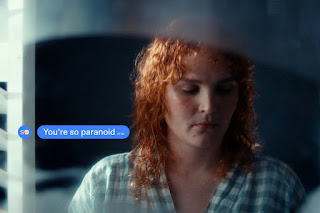Isabella Ross
Mamamia
MAY 14, 2024
Content warning: This story includes descriptions of domestic abuse that may be distressing to some readers.
Conversations about coercive control are at an all-time high.
It comes amid the New South Wales Parliament's decision to introduce new laws to address coercive control. This is a welcomed step in the right direction according to advocates, experts and victim-survivors.
As discourse on coercive control continues, some may still feel a little confused as to what it really is and the impact it has.
Annabelle Daniel OAM is the CEO of Women's Community Shelters, an organisation that works with communities around NSW to establish crisis accommodation for women and kids who are homeless or leaving domestic violence. She is also the chair of peak body Domestic Violence NSW and is an independent member on the Coercive Control Implementation and Evaluation Taskforce. With this in mind, Daniel is well versed in the subject of domestic and family violence, and specifically coercive control.
"Coercive control is domestic abuse. It's about dominating and controlling somebody, keeping them in fear, and intimidating them. It's cutting off a victim-survivor's access to the outside world in many different ways," Daniel says to Mamamia.
"We think of coercive control as the toolbox of all the different kinds of abuse — financial, emotional, physical, sexual. The perpetrator uses these behaviours to repeatedly hurt, scare or isolate another person to control them. That's coercive control."
While some abusive behaviours can seem minor on their own, when they’re used as a pattern of behaviour, they understandably cause serious harm. The abuse can affect every part of a victim-survivor’s life, including their mental and physical health, relationships, employment, and financial security.
It can impact someone's sense of safety, their independence, and self-esteem — and can make them feel trapped, powerless, and alone. It makes sense why coercive control is often referred to as "intimate terrorism."
Coercive control is also a known precursor for intimate partner homicide.
The NSW Domestic Violence Death Review Team found that around 97 per cent of intimate partner domestic violence homicides in NSW between 2000 and 2018 were preceded by the perpetrator using emotional and psychological abuse as a form of coercive control towards the victim. It's a statistic that Daniel thinks ought to be discussed more.
Given the serious and dangerous impact of this abuse, from 1 July 2024 there are new laws to address coercive control in NSW. Daniel sees these new laws as a big victory for the state.
"The fact many states and territories are now acknowledging that coercive control is dangerous and legislating it as illegal, is incredibly important. The more we talk about what equitable and healthy relationships look like, the better. These conversations can change and save lives."
Ultimately knowledge is power, so it’s important to be across what coercive control is, and what it can look like.
"Talking about coercive control as part of my work, oftentimes we'll have people come up to us and say, 'I didn't realise I had been experiencing that in my marriage', or even, 'I'm really concerned about my own behaviours, what do I do?'
For anyone who is concerned their loved one, friend, or even a colleague might be experiencing abuse of any kind in their relationship, Daniel says it’s always wise to be aware of what the behaviours are and how to recognise them.
“Keep it in mind if somebody is increasingly cutting themselves off from the people they love and care about, or from activities and things they enjoy,” she explains.
“If your loved one is making themselves smaller around their partner, or if they appear to be in fear when they’re around their partner. Also, if the partner says derogatory things to your loved one or about them in public.”
Daniel stresses that help is available, and no one deserves to experience abuse, violence, or intimidation.
"There are a number of amazing support services available, and the awareness and training surrounding coercive control from first responders in NSW has been really heartening to see," she notes.
For more information on coercive control, you can visit the NSW Government's help page on their website.
If you’re experiencing coercive control, want to support someone else, or you’re hurting someone you care about – there is help available.
If you are in immediate danger, call Triple Zero (000) and ask for police.
If this has raised any issues for you, or if you just feel like you need to speak to someone, please call 1800 RESPECT (1800 737 732), chat online via 1800RESPECT.org.au or text 0458 737 732 – the national sexual assault, domestic and family violence counselling service.
https://www.mamamia.com.au/what-is-coercive-control-explainer/


No comments:
Post a Comment